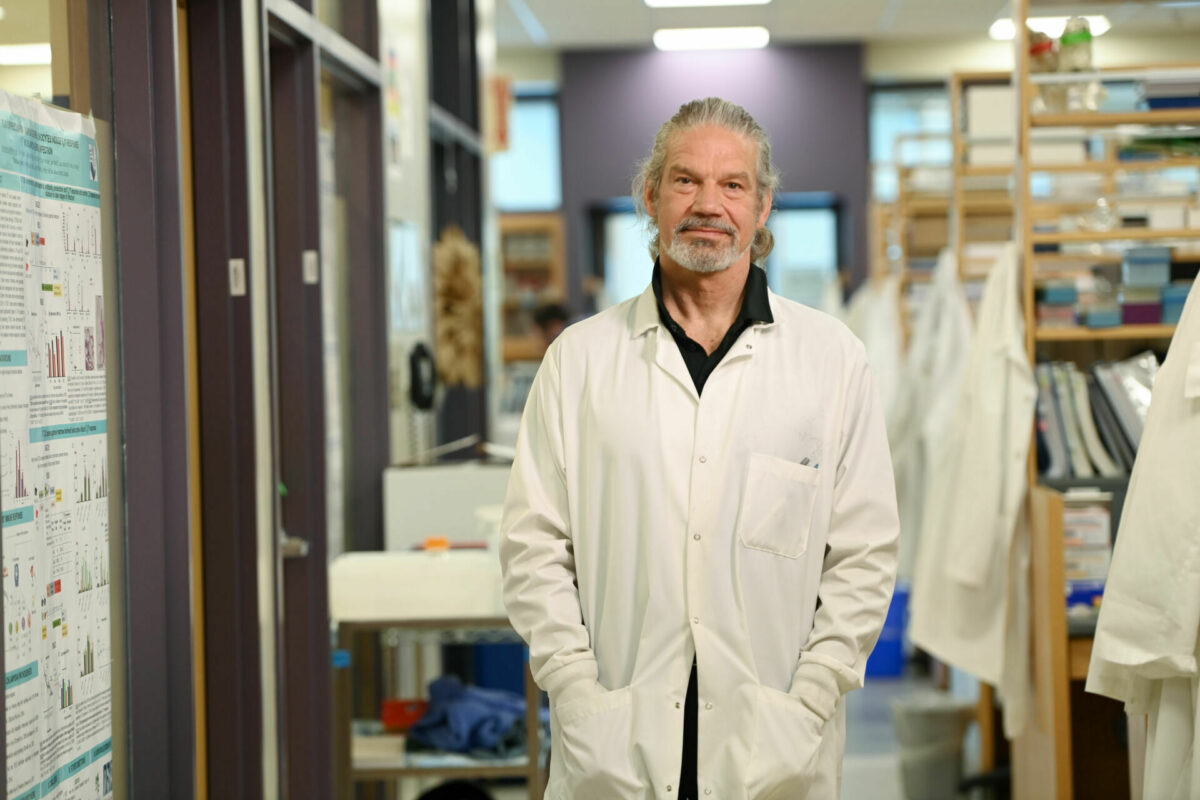Dalhousie leads transformative medical research to improve maternal, child health
February 29, 2024
When Dr. Tobias Kollmann envisions the future of maternal and child health, he can clearly see a path forward through research that could save millions of lives.
Every year, 300,000 women around the world die from complications of pregnancy. More than 5 million infants also lose their lives, including millions who are stillborn. Many of those losses are due to infections.
“We’re losing as many people to adverse pregnancy outcomes every single year as we have lost to COVID,” says Kollmann, a professor, researcher, and pediatric infectious disease specialist.
“If you add up all these deaths, it adds up to the top three causes of death across the human lifespan, yet it receives 0.001 percent of [research] funding and focus,” he adds.
This bleak reality will change, if Kollmann and the network of experts he is assembling get the philanthropic support required to transform maternal and child healthcare.
“We have the tools to end at least 70 to 80 percent [of deaths], like this,” Kollmann says, snapping his fingers. “Immediately. We can do this now.”
Kollmann and his colleagues have launched an initiative called Born Strong.
Their goal is to implement solutions current technology and research breakthroughs have already made possible, to make sure babies are born full-term with the tools their tiny bodies need to fight off and survive infections.
One of the ways to reduce the deaths is by boosting the immune systems of mothers, before and during pregnancy, Kollmann says.
Strengthening mothers will improve the immune resilience of their babies, preventing the deaths and disabilities that result from even common respiratory infections such as RSV, a regular visitor during North American winters.
Boost immunity
Vaccinating women, such as with the tuberculosis vaccine BCG (Bacille Calmette-Guérin), is one of the ways to boost resilience Kollmann and the Born Strong team are investigating.
Thanks to the work of another Dalhousie researcher, Dr. Nelly Amenyogbe, researchers know the BCG vaccine protects newborns from septic death by increasing production of a type of white blood cells neutrophils that boost immune production.
Kollmann and his colleagues are also developing a remote pregnancy monitoring system. The system would alert women during the first trimester if they are at risk of delivering their baby early, allowing community health practitioners to intervene to prevent early deliveries.
These inexpensive, non-invasive monitoring systems could not only prevent the human cost of these terrible losses, but the systems could also reduce the economic costs of these preterm births and the lifelong effects that linger for the infants.
In Canada alone, the cost of caring for premature infants is $8 billion annually.
A future where preterm births are prevented, and mothers and newborns’ immune systems are strengthened, saving them from death and disability, is almost within reach, Kollmann says.
“It’s worth getting that into the crosshairs of people who would like to have an impact.”

